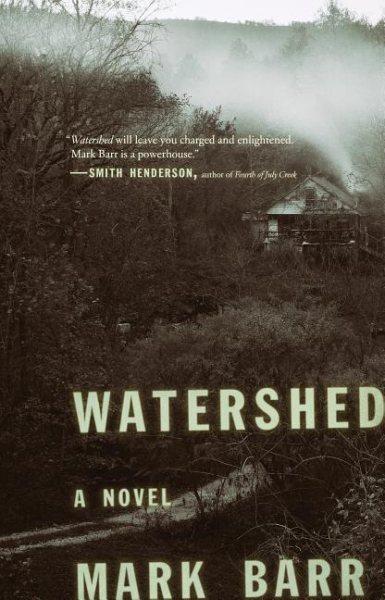Interview by Jana Hoops. Special to the Clarion-Ledger Sunday print edition (December 29)
 Mark Barr’s debut novel Watershed literally sheds light on the true story of how electric light first came to rural Tennessee in the 1930s–and how its arrival changed those communities in ways they never expected.
Mark Barr’s debut novel Watershed literally sheds light on the true story of how electric light first came to rural Tennessee in the 1930s–and how its arrival changed those communities in ways they never expected.
Through its pages, Barr chronicles the stories of fictional characters Claire and Nathan, whose complicated fates are drawn together only through the enormity of the construction of the hydroelectric dam that would supply the power to turn the lights on. Barr’s meticulous research adds an attention to detail that draws the reader into the time and place of the story.
A software developer who likes to spend his spare time baking bread, Barr has been the recipient of numerous fellowships, including those from Blue Mountain Center, I-Park Artists Enclave, Jentel Arts, Kimmel Harding Nelson Center, Millay Colony, and Yaddo. He earned an MFA from Texas State University.
Barr resides in Arkansas with his wife and sons.
What was it about the Tennessee Valley Authority hydroelectric dam project in 1930s rural Tennessee that caught your interest and inspired this story?
I had been working as an advertising copywriter, and I was assigned to write a brochure for an electric cooperative client. During my preparation for that, I was shocked to learn that, while electricity was available in our large cities in the early years of the 1900s, it wasn’t until 1937 and the Rural Electrification Act that much of the rural countryside finally got electrical service. I was kind of shocked, not that we’d experienced this divide, but that we don’t much collectively remember it.
The prospect of life with electricity was an unknown in 1930s rural Tennessee. Explain how the dam’s construction in Watershed would bring more changes to the community than just electric power–and how the book’s title reveals that.
We don’t stop to think about it much, but we today enjoy a standard of comfort and living that is far beyond 99 percent better than what our preceding ancestors had. Consider the fact of air conditioning when it is hot, lights when it is dark, our global communications network and internet–all of these things are available by and large because of electricity. It’s a foundation for so many other conveniences. It is hard to overstate the reach of its benefit.
Please tell us about the fears and ambitions of central characters Claire and Nathan.
I think a lot of the novel has to do with our past and our inability to ever escape it. Nathan is bound to his. Claire is shaped by hers, even as she grows into a new life. When I set out to write the book, Nathan was, to my mind, the main character. It surprised me when Claire came along and then grew into what I now think of as the primary character. It’s Claire’s struggle and growth that defines the arc of the novel’s story. I feel that it is because of Claire that the book is an optimistic one.
With the scarcity of jobs during the post-Depression years of the ‘30s, explain the tension between the locals and the outsiders who competed for employment on this project in Hardin County, Tennessee.
Here’s a story that reflects the scarcity of jobs during this time period: I visited a couple different dams that had been built in 1937 during my research. At one of them I learned that, during the construction effort, a camp had sprung up just adjacent to the dam site. It was comprised of men seeking work. Each morning, men from the camp would venture over to the dam site to inquire if anyone had died during the previous day, and if so, if a position had opened up as a result! A version of that story made it into the novel.
What can you tell us about future works you may have in progress now? Do you plan to stick with historical fiction as your main interest?
I’ve got a couple different projects that I’m working on next. The one that currently has the upper hand is set in an Illinois coal mining town in the 1990s. I’m drawn to stories about communities as they change, and this one deals with the strains placed on a particular town, generationally, after the mines shut down.
Lemuria has selected Watershed its November 2019 selection for its First Editions Club for Fiction. Signed first editions of Watershed are available in our online store.


Comments are closed.